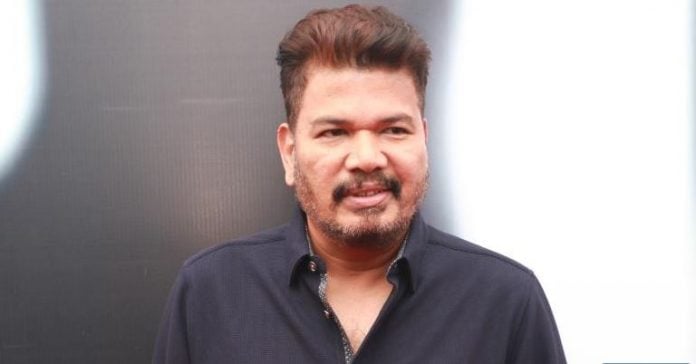New Delhi (ILNS): The Supreme Court has dismissed a petition for cancellation of a copyright violation case against a film director from Tamil Nadu. The petition had challenged the order of the Madras High Court, which said that the copyright violation case against him for the Tamil movie Endhiran cannot be dismissed.
The appeal was from director Shankar.
Aarur Tamilnadan, a writer from Tamil Nadu, had written a story titled Jiguba, which was published in the Tamil magazine Iniya Udhayam in 1996. The same story was re-published in 2007 as another novel titled Dhik Dhik Dheepika.
In 2010 after the release of the Tamil movie Endhiran under the direction of Shankar, it was found that the story of Endhiran was copied from the story Jiguba. Aarur Tamilnadan, the author of Jiguba immediately sent a legal notice to Kalanithi Maran, the producer, and Shankar, the director of the film Endhiran. Since there was no reply from either of them, Aarur Tamilnadan filed a complaint of Copyright Violation to the Commissioner of Police, Chennai against both of them.
The complainant stated that the director and producer had copied his story to create the film Endhiran which was a violation of the Copyright Act, 1957. It stated that they had made huge monetary benefits (in crores) from the film which was originally the idea and creation of the complainant and therefore a punishable offense under the Copyright Act, 1957.
Aarur Tamilnadan filed this complaint seeking legal action against the producer and the director, but the Police authorities did not file any complaint even after investigating for a long period of time. Therefore, the complainant filed a Criminal case through a private complaint against Kalanithi Maran and Shankar before the 13th Metropolitan Magistrate Court, Egmore, Chennai.
The 13th Metropolitan Magistrate’s Court summoned both the accused to appear before the court in 2011. Following this Kalanithi Maran and Shankar filed a quash petition before the Madras High Court seeking an order to quash the proceedings before the Egmore Magistrate stating that the story was not copied from Aarur Tamilnadan and therefore his complaint was invalid.
The High Court of Madras granted a stay order for the case before the Egmore Magistrate. This case has been proceeding in the Madras High Court over the past 10 years. On June 6, 2019 Justice. Pugazhendhi delivered his judgment in this case. As per the verdict, it was held that the complaint of Aarur Tamilnadan against Kalanithi Maran was invalid. However, the court admitted the case against the director Shankar and stated that there were 16 similarities between the story and the film. The verdict contained a table enlisting the similarities between the story and the film. The court held that the alleged Copyright violation was proved and therefore directed the Egmore Magistrate Court to resume the proceedings under Copyright Act against director Shankar.
An order was passed stating that Shankar shall not be required to appear before the court in all hearings because he was a famous personality and that his appearance before the court would lead to the public crowd and administrative complications. Therefore, he shall be required to appear in hearings only when required specifically by the court.
At this juncture, where the Egmore Magistrate Court was about to initiate the proceedings and resume investigation, the regular activities of the court were restricted by the COVID-19 pandemic. Now, after one year, Shankar has approached the Supreme Court by way of an appeal against the judgment passed by the Madras High Court.
Read Also: Patna High Court tests new system: Lawyers, judges sit in separate rooms
Director Shankar has not appeared before the Egmore Magistrate Court even once. It is pertinent to note that the civil case filed by the same writer before the High Court of Madras against director Shankar is pending and he has failed to appear before the court even after the High Court passing a specific order directing him to appear and adduce evidence.
-India Legal Bureau


